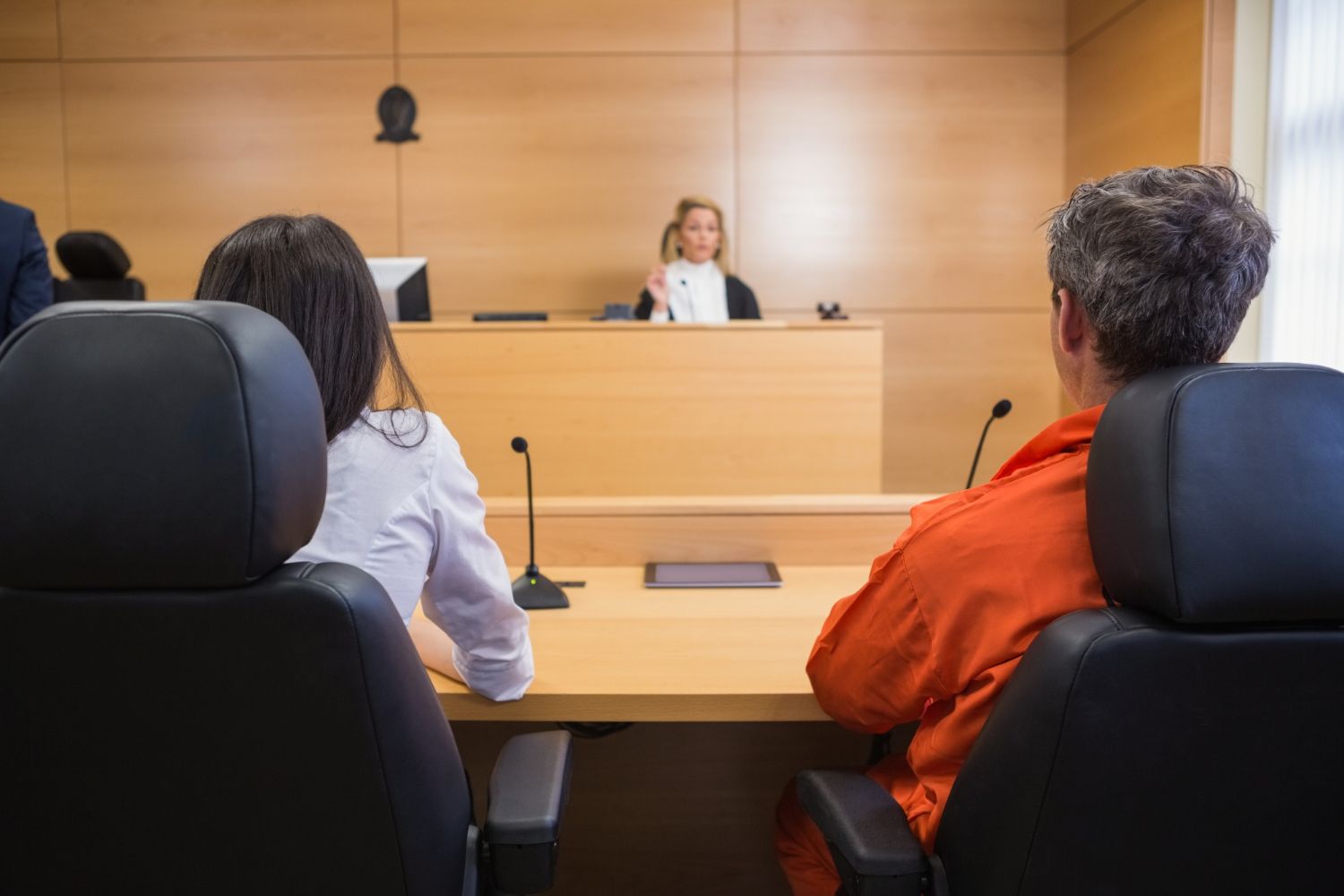Can You Go to Jail at a Preliminary Hearing?
Written by Law Office of Rolando Cantú, reviewed by Rolando Cantú
Can You Go to Jail at a Preliminary Hearing?
A preliminary hearing holds great significance within the criminal justice process as it carries crucial implications for defendants involved in federal criminal defense cases. This blog post aims to explore the question of whether a defendant could potentially face imprisonment at this stage, focusing on federal criminal defense proceedings.
- Decoding Preliminary Hearings
- The Purpose and Function of Preliminary Hearing
- Importance of Pretrial Conferences for Defendants
- Potential Outcomes of Preliminary Hearings
- Are Pretrial Conferences Mandatory in Every Case?
- Can You Go to Jail at a Preliminary Hearing?
- Federal vs. State Preliminary Hearings: A Comparison
- Conclusion
Decoding Preliminary Hearings
A preliminary hearing, often known as a probable cause hearing, is a judicial proceeding that occurs before a trial. Its primary purpose is to determine if there is sufficient evidence to support the argument for the defendant standing trial on the charges brought against them. Put simply, during this proceeding, the prosecution does not need evidence that surpasses reasonable doubt.
During the hearing, the prosecution presents its case, which includes evidence and witnesses, in order to establish probable cause. At the same time, the defense attorney has the opportunity to challenge the presented evidence and advocate for charges dismissal. Improved version: In this hearing, the prosecution brings forth its case by presenting evidence and calling witnesses. They aim to establish probable cause. The defense attorney can use this opportunity to challenge any evidence or advocate for the dismissal of charges.
You might be interested: Can Charges Be Dropped at an Arraignment Hearing in Texas?
The Purpose and Function of Preliminary Hearing
The preliminary hearing primarily aims to evaluate the strength of the prosecution's case rather than determining guilt or innocence. It serves as a safeguard against unjustified prosecution by ensuring that there is sufficient evidence to warrant a trial. In essence, the court assesses whether the presented evidence and witness testimonies are substantial enough to establish probable cause—a standard of proof that is less rigorous than what is required for a conviction at trial.

Importance of Pretrial Conferences for Defendants
Pretrial conferences offer numerous advantages to defendants in federal criminal defense cases:
- Case Management: In the process of case management, the court evaluates the status of the case, establishes deadlines, and constructs a timeline for pivotal trial events. This ensures a smoothly executed legal procedure characterized by organization and efficiency.
- Present Evidence and Witness List: Attorneys representing both parties exchange information regarding the evidence they plan to present and the witnesses they intend to call. This process promotes transparency in criminal proceedings, ensuring that all relevant facts and testimonies are disclosed.
- Negotiations and Plea Bargains: Pretrial conferences provide an opportunity for negotiations, which may lead to the resolution of the case through a plea agreement. This agreement could potentially result in reduced charges or alternative resolutions.
- Legal Motions: The trial process can become more efficient by discussing and resolving pending motions, such as those aimed at suppressing evidence or dismissing the case. This allows for a smoother flow and resolution of legal matters.
- Trial Preparation: Experienced criminal defense lawyers can engage in discussions about trial logistics, stipulations, exhibit lists, choose if it should be a jury or non-jury trial, and other crucial aspects, ensuring adequate preparation for the trial.
Also read: Sentencing Hearing: Understanding the Process and Protecting Your Rights
Potential Outcomes of Preliminary Hearings
Depending on the evidence and arguments from both sides, the judge at a preliminary hearing can reach different conclusions:
- Probable Cause Established: If the judge determines there's enough evidence to establish probable cause, the case advances to trial. The defendant will face further court proceedings, increasing the likelihood of incarceration. However, it is essential to remember that the trial determines the final verdict on guilt or innocence.
- Probable Cause Not Established: The judge may dismiss criminal charges if the defense successfully challenges the prosecution's evidence, establishing a lack of probable cause to proceed. This outcome spares the defendant from undergoing a criminal trial or a court appearance.
It is important to clarify that a preliminary hearing does not immediately result in sentencing or determination of guilt. Its purpose is solely to assess the prosecution's case and determine if there is sufficient evidence to proceed further.
Are Pretrial Conferences Mandatory in Every Case?
In federal criminal defense cases, it is common to have pretrial conferences. However, the court has the discretion to waive this requirement based on factors like the nature of the case and agreement between the parties.

Can You Go to Jail at a Preliminary Hearing?
In federal criminal defense cases, two key proceedings serve different purposes. First, a preliminary hearing, also known as probable cause hearing, is conducted to assess the evidence's adequacy for trial. Its objective is for the prosecution to prove to the court that it is likely a crime has occurred and hold the defendant accountable. On the other hand, a pretrial conference focuses on preparing for trial by discussing various matters related to the case.
It is important to highlight that, during a preliminary hearing, a defendant cannot be directly sentenced to either jail or prison. The purpose of the preliminary hearing is to establish probable cause, and if the court finds sufficient evidence, the case will proceed to trial.
You can also read: Can You Go to Jail at an Arraignment?: Understanding the Legal Implications
Federal vs. State Preliminary Hearings: A Comparison
Preliminary hearings follow similar principles to federal and state proceedings, yet it is important to recognize certain procedural differences.
In Texas, a defendant can be imprisoned before their hearing if they fail to fulfill the court's bond requirements. Moreover, even without established probable cause at the preliminary hearing stage, a Texas judge maintains the authority to proceed with the trial.
In contrast, federal criminal defense laws do not grant the authority to arrest a defendant before or following a preliminary hearing. Consequently, if during the hearing no probable cause is established, the charges are typically dismissed and no imprisonment is imposed on the defendant.
Conclusion
To sum up, a preliminary hearing plays a critical role in the federal criminal defense process as it decides if there's adequate evidence to proceed to trial. Although attending a preliminary hearing doesn't necessarily result in immediate jail time, it does increase the probability of further court proceedings and potential incarceration if the defendant is eventually convicted. Therefore, it's paramount for defendants to seek counsel from experienced defense attorneys who can provide legal guidance tailored to their unique situation.
The Law Office of Rolando Cantu is experienced in providing federal criminal defense services, Contact us today for a free consultation. As a criminal defense lawyer, he is committed to offering the highest quality legal representation and protecting your rights every step of the way.
Please keep in mind that this blog post, while informed by reputable sources, does not constitute legal advice. Always consult an attorney for professional guidance specific to your circumstances.











